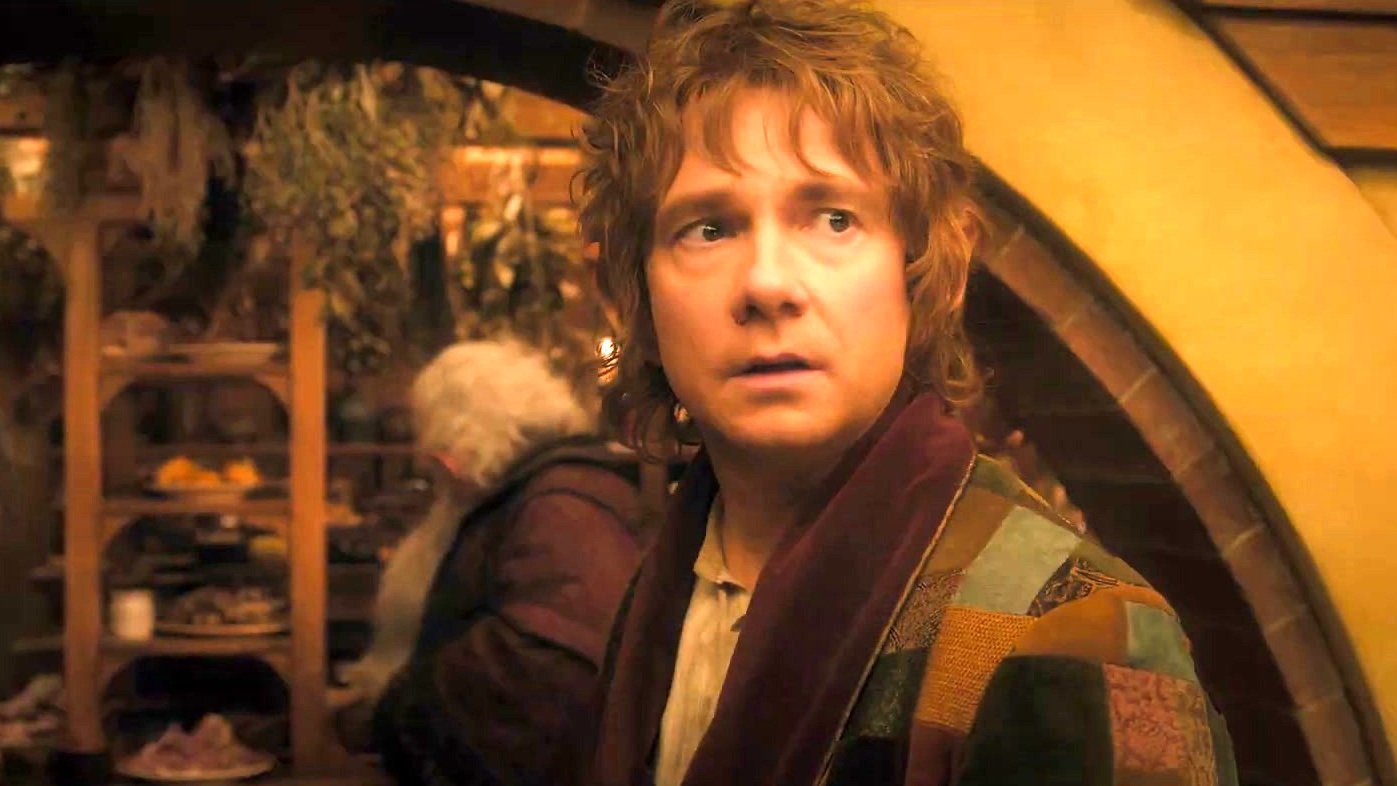
There are plenty of bad films out there which could have been great, but what about the ones which were only ‘good’ but could have been great? There are many films out there which succeed in one area or another, but for the most part, fall short and end up squandering great opportunities.
These films had the potential to be great, iconic and cult classics. Instead, they simply ended up being a film you would enjoy, all the while you had a niggling thought that said: “I expected something more…” Without further ado, here is the list of the top ten films that were good, but could have been great.
10. The World’s End (2013)
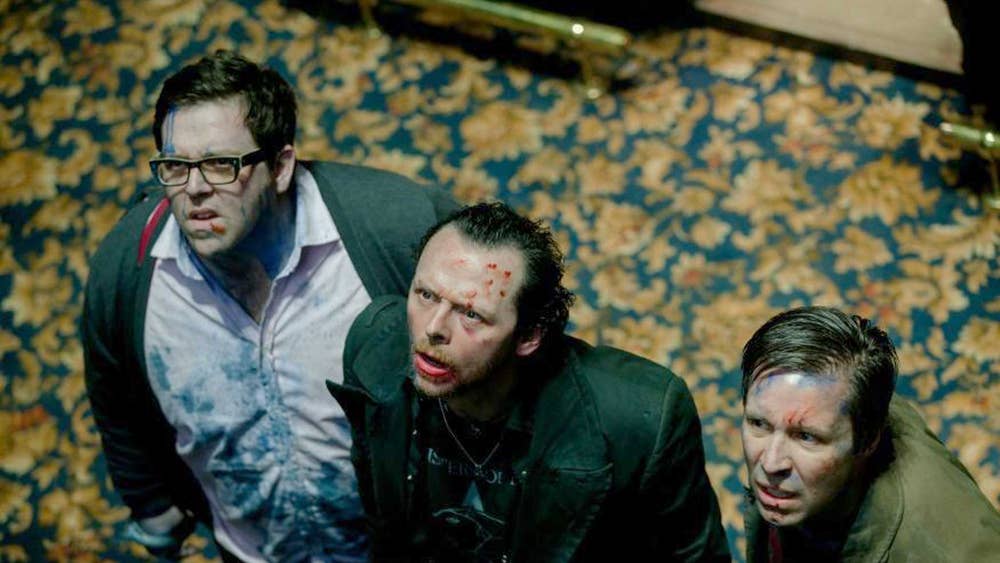
As a big fan of Edgar Wright, it can be frustrating to see the pitfalls of The World’s End (2013). Although everyone had high hopes for his conclusion to the Cornetto Trilogy, the final outing ultimately felt like it could have been better.
One thing which felt very noticeable was how the film tried to do a number of things at once. While Wright often seems as though he is able to get the balancing act right in most of his films, he falls off the tight-rope here. A redemption story, a coming of age tale, a drama, a comedy, a horror, an homage to science-fiction films of the 1950s, an action film; it felt like a lot to squeeze into under two hours. This resulted in the film’s pacing coming across as hectic. You might say that all of Wright’s films feel a little hectic, but in World’s End it doesn’t even feel as though there is space for jokes to land because so much is trying to be done at once.
A distracting factor of the film was how Simon Pegg and Nick Frost swap character archetypes. While I’m not suggesting it is necessary to pigeon-hole actors into playing specific parts, it is clear that Pegg and Frost bounce off of each other better when they are leaning into a specific role. Pegg as the dysfunctional and destructive man-child didn’t click and while Frost performed brilliantly as the ascetic grown-up, it is a shame he was not able to steal the show and play the main character.
Five friends attempt to survive an alien invasion by doing a pub crawl in their home town – what could go wrong here? Placing Nick Frost in the lead role and giving Simon Pegg the task of being his supporting character would have benefitted the humour in that it would not have felt so forced. Better balancing of action, comedy and drama also would have. The World’s End could have been a great conclusion to a visually stunning and wildly hilarious trilogy. Ultimately, it felt more like it was a nostalgic rehash of Shaun of the Dead, swapping out a brainless mass of zombies for an invading force of insidious aliens.
9. Cube (1997)
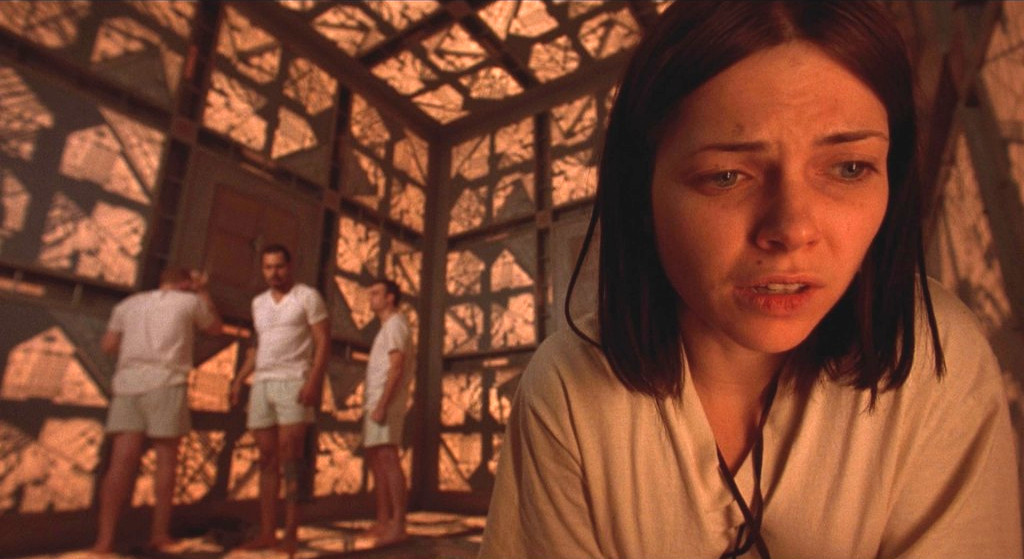
Five people find themselves inside a giant cube with no means of escape. They don’t know how they got there and they don’t know how to get out. As they traverse a series of deadly traps in an attempt to escape, they come to learn more about their terrifying predicament, along with the reason why all of them have been brought together.
What prevented this film from being great? The acting for one thing. Though it is a low-budget film, the acting is really the only indicator of that. Maurice Dean Wint’s attempts to come across as suddenly insane makes for an anti-immersion experience: his character shift takes you right out of the film. This is also partly the fault of the writing which seemed to wane in quality towards the end of the film, which brings me to my next point…
Though the film starts brilliantly and even steadily builds tension and mystery as the story progresses, there is a clear moment when it feels as if Vincenzo Natali, the writer and director of the movie, realised he didn’t know what to do with the story he had created. Should he have revealed the origins of the cube? Should he have divulged the reason behind Wint’s sudden turn into a malicious maniac? All could have helped, but ultimately, we will never know. Cube (1997) will forever be a cult classic film, but not a great one.
8. Where the Wild Things Are (2009)
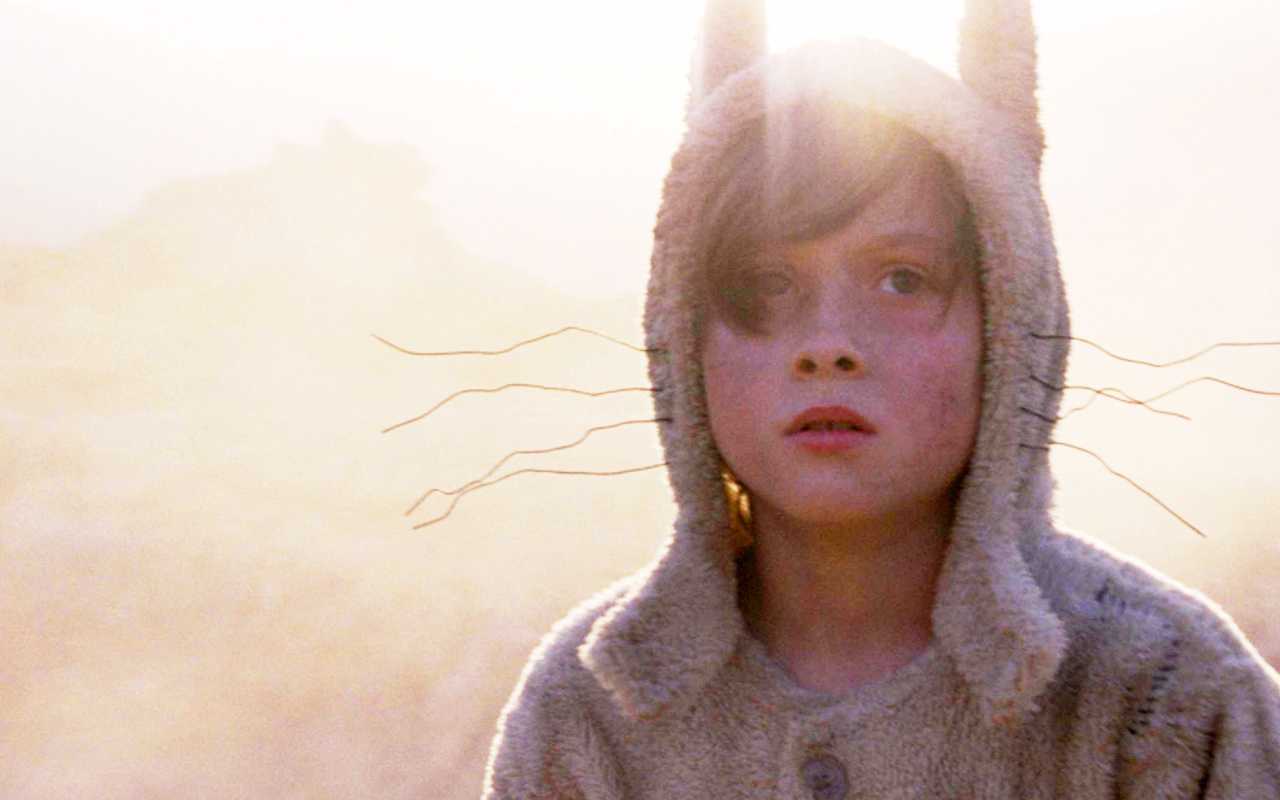
This is the first entry on this list that is a book to film adaptation, but it won’t be the last. As it turns out, quite a few book adaptations become somewhat lacklustre when they are finally put onto the screen. This classic children’s book is as charming as they come, but the film did not deliver to the same extent. Why?
Firstly, the film makes great efforts to set up character flaws and issues, but doesn’t assign much time to solving them. When Max first leaves home, he is violent and inconsiderate, though we have the feeling that he has a good heart deep-down. He meets the Wild Things, all of whom have their own problems which are touched upon, but never fleshed out in depth. Carol, played by James Gandolfini, touches upon themes of loneliness and regret which strike a real chord with the viewer, but then it isn’t really mentioned again. Max returns home at the end of the story without having truly addressed the issues he’s experiencing, so the sentimental ending feels somewhat hollow.
The film also doesn’t feel like it moves in a single direction, as though it meanders from one scene to the other, not quite sure how it is going to conclude the story. This could in part be due to the studio interference which Spike Jonze experienced upon completion. Though the film was completed, the studio disliked the finished product as it was not as family friendly as they imagined it would have been and forced Jonze to come back with a film more palatable to a younger audience. The result is a muddled film, sometimes melancholic, sometimes saccharine.
It’s a story about a troubled boy who runs away into the woods where he meets and bonds with a society of wild monsters. Sounds great, no? Not quite. It’s good, that much is true. Ultimately, however, it feels as though the film is going to open up more, but then it doesn’t. Instead of developing on some of the issues the Wild Things discuss, the narrative moves into a different (and rather arbitrary) direction. The result is a film which feels as though it didn’t fulfil its potential, as though there was something instrumental lost on the cutting room floor. In the end, Where the Wild Things Are (2009) was good, but not quite charming and not quite great.
7. Goon (2011)
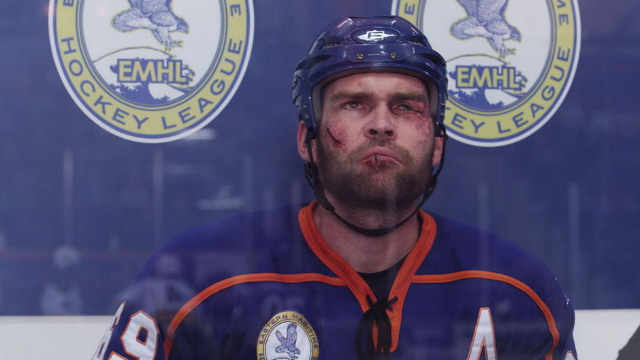
Goon (2011) is somewhat of a guilty pleasure watch. The issue here is that it didn’t have to be. The film had a great cast and Sean William Scott’s performance as Doug Glatt gave the story the emotional heft it needed to go beyond a silly sports comedy. It could have been a great film, but it resigned itself to just being a good silly sports comedy. So what was the biggest issue with this film then?
The writing. Jay Baruchel and Evan Goldberg were the screenwriters behind this project and they never appear to go beyond the surface level. The characters – Doug Glatt and Xavier Laflamme in particular – are not given much depth and so are reduced to being one-dimensional, both in their motivations and their relationship with one another.
The growth which they both experience throughout the film feels a little undeserved as moments of great epiphany were not built up to accordingly. For this reason, the connection that the two main characters create throughout the film feels cheapened. A longer film than ninety minutes with more time given to exploring the two developing with each other could have helped this problem.
Beyond this, the film indulges in humour that is a little too vulgar to be funny and detracts from the heart that is inherent in the film’s premise. Risqué jokes are great, but watching Jay Baruchel doing lewd slapstick like pretending that the camera is giving him a blowjob or running after a train imitating cunnilingus makes me think that he and Goldberg weren’t trying very hard when they wrote this film. Instead of attaching the humour to Glatt’s simple-minded and sweet-hearted barbarism, the film is filled with jokes that will only appeal to twelve year olds. The film is good and has a terrific final sequence which makes it memorable, but this silly, course sports comedy could have been much more than that.
6. A Time to Kill (1996)
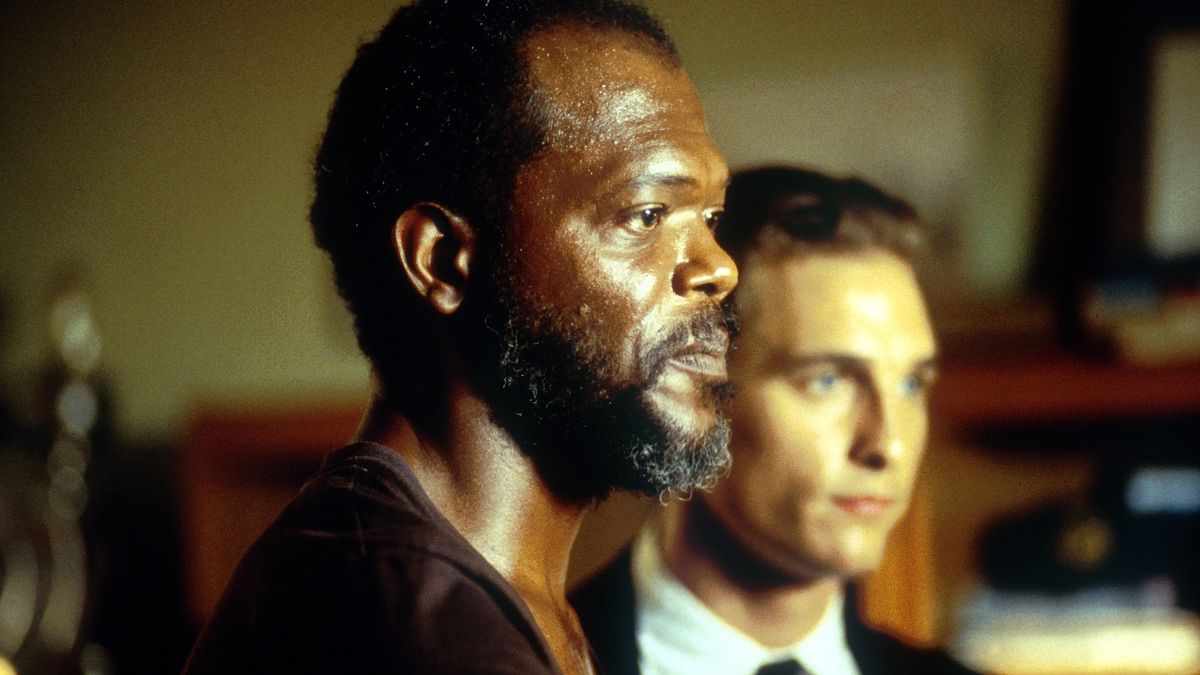
John Grisham’s books have had a number of adaptations done for the silver screen. A Time to Kill (1996) was not the best. Set in 1984, the story is about the vengeance a man takes upon the men who raped his ten year old daughter. It tackles important themes about life, race and the way our society and our courts treat both. The film, however, could have been reminded about that on a few occasions.
A plotline which detracts from the film’s key theme is the incessant flirtation that goes on between Sandra Bullock and (the very much married) Matthew McConaughey. Instead of a tense legal thriller that follows McConaughey and the team trying to find a way to save Samuel L. Jackson’s life, we get McConaughey and Bullock in the bar throwing back shots, getting blasted and resisting the urge to sleep with one another. It actually feels a tad inappropriate; a child has been raped and her father’s life is at stake because of white prejudice, but instead of focusing on this, every second scene we see McConaughey in is of him pounding beers and eyeing-up Bullock.
Themes such as racial injustice, murder, capital punishment, and the dehumanising effects of racism should have been explored more fully. The eye-candy distracts us from what the story is really about and this irrevocably damages the finished product. With such little time being put into solving the case and treating the issue of race like an afterthought, it feels like a cheaper version of Mississippi Burning (1988).
Besides all of this, at two and a half hours, the film is unnecessarily long (probably because of all the coquetry between McConaughey and Bullock) and leaves the story feeling longwinded. The final speech from McConaughey is dynamite and Samuel L. Jackson’s performance is brilliant, but the film ultimately lacks the fertile ground needed to allow true seeds of thought to grow.